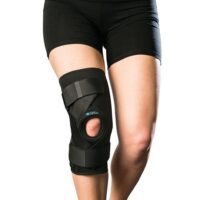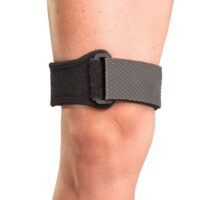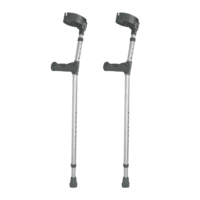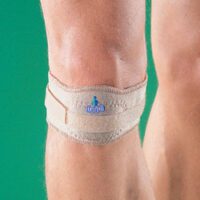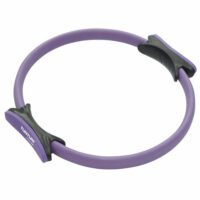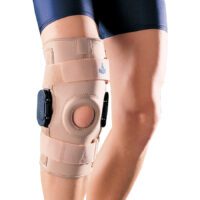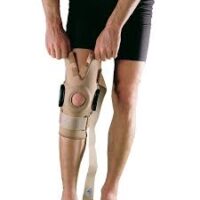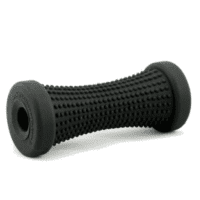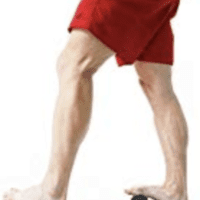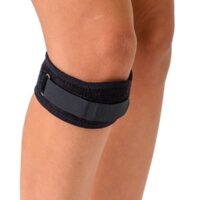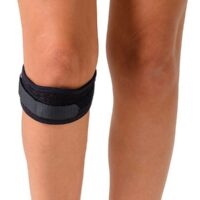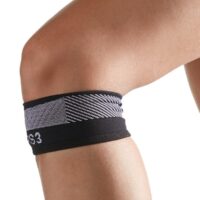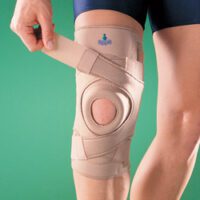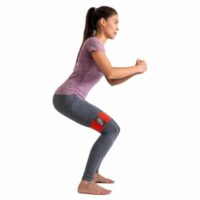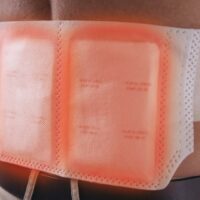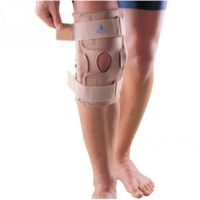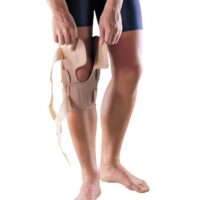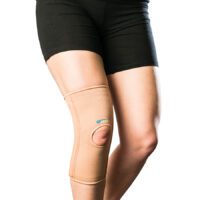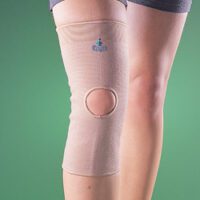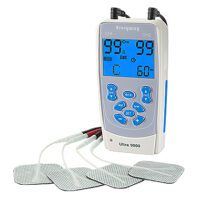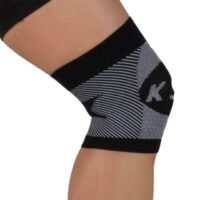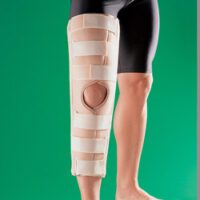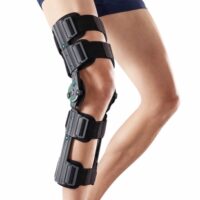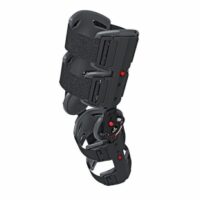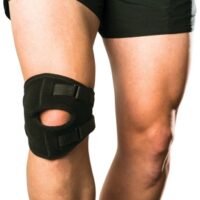Knee Arthritis
Article by John Miller

Knee Arthritis
Insights from a Physiotherapist
Knee Arthritis and Osteoarthritis (Knee OA)
Knee arthritis, often caused by knee osteoarthritis (Knee OA), is a degenerative condition that affects the knee joint. It leads to the gradual breakdown of the articular cartilage, exposing underlying bone and causing the formation of bony spurs. This process results in pain, inflammation, and reduced mobility.
There are two primary types of knee arthritis: tibiofemoral arthritis and patellofemoral arthritis. Tibiofemoral arthritis impacts the joint between the thigh bone (femur) and lower leg (tibia), while patellofemoral arthritis affects the joint between the kneecap and the femur.
Causes of Knee Arthritis
Knee arthritis arises from various factors such as age, weight, previous knee injuries, genetics, and repeated stress on the knee from certain jobs or sports. Age-related wear and tear, especially in weight-bearing joints, is a common cause. Additionally, genetics can influence cartilage quality, and previous knee injuries can disrupt knee joint biomechanics, leading to uneven load distribution.
Symptoms of Knee Arthritis
Common symptoms include knee pain, stiffness, swelling, clicking or grating sounds during movement, and decreased muscle strength. These symptoms can significantly impact mobility and daily activities.
Diagnosis of Knee Osteoarthritis (OA)
Diagnosis involves a physical examination and medical imaging like X-rays, which can reveal cartilage loss and bony changes. In some cases, MRI or CT scans provide more detailed information.
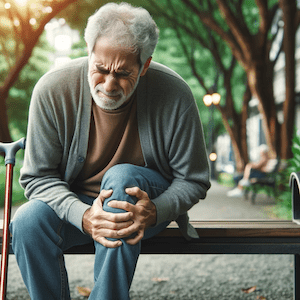
Treatment Approaches
Exercise and Physiotherapy
A cornerstone of knee arthritis management, physiotherapy focuses on strengthening muscles around the knee, enhancing mobility, and reducing pain. Treatments may include tailored exercises, massage, heat or cold therapy, and electrical stimulation.
Medications
Pain relievers, NSAIDs, and corticosteroids can alleviate pain and inflammation. In some cases, DMARDs or biological agents are prescribed to slow disease progression.
Knee Braces and Injections
Knee braces offer support and pain relief, while injections like corticosteroids or hyaluronic acid provide temporary symptom relief.
Weight Management
Reducing weight lessens the load on knee joints, potentially easing pain and improving function. It’s crucial to seek professional advice before starting any weight loss program, especially if you have knee arthritis.
Surgical Interventions
For severe cases, surgery like knee arthroscopy or knee replacement may be necessary. These procedures can significantly reduce pain and enhance function, although they come with certain risks.
The Role of a Physiotherapist in Managing Knee OA
Physiotherapists play a pivotal role in managing knee arthritis. They provide professional guidance on exercise programs, use therapeutic modalities to reduce pain and swelling, and offer advice on lifestyle modifications to manage symptoms effectively. Physiotherapy is essential not only for managing knee arthritis but also for post-surgical rehabilitation to restore knee function and mobility.
Recent Research in Knee Arthritis Treatment
Recent advancements in knee arthritis treatment have focused on early intervention, patient-specific exercise programs, and non-invasive treatments to delay or avoid the need for surgery. Studies have shown that a combination of strength training, aerobic exercises, and weight management can significantly improve symptoms and quality of life for individuals with knee arthritis.
The Role of Exercise Therapy in Managing Knee Osteoarthritis
Exercise therapy stands as the first line of treatment for knee and hip osteoarthritis (OA), yet it remains underutilised. Recent studies underscore the importance of incorporating exercise therapy into the management plans for OA patients. This approach is not only safe for joint structures and overall patient health but is also effective regardless of disease severity or the presence of other health conditions.
Effectiveness and Safety of Exercise Therapy
A wealth of evidence indicates that exercise therapy significantly improves patient outcomes in knee and hip OA. It has been shown to be a safe treatment option, posing no undue risk to joint structures or overall health. Systematic reviews consistently reveal that all types of exercise therapy are likely to be beneficial, although no single type of exercise has been found to be superior to others.
Personalised Exercise Therapy for OA Patients
It is crucial for healthcare practitioners to encourage OA patients to include exercise therapy in their treatment plans. The assurance of its safety and potential for improving critical patient outcomes makes it a valuable component of OA management. Given the lack of evidence for the superiority of any single exercise program, the choice of specific exercise therapy should be guided by patient preference and lifestyle factors. This personalised approach, part of a shared decision-making process, ensures that the exercise regimen aligns with the individual’s needs, preferences, and lifestyle, thereby enhancing its effectiveness and adherence.
Conclusion and Call to Action
Knee arthritis, particularly Knee OA, is a prevalent condition that can significantly impact your quality of life. Understanding the causes, symptoms, and treatment options is crucial for effective management. Regular consultation with a physiotherapist can provide tailored advice and treatment plans, ensuring the best possible outcomes.
If you’re experiencing symptoms of knee arthritis, don’t hesitate to seek professional advice. A qualified physiotherapist can guide you through a personalised treatment plan, ensuring you maintain mobility and reduce pain effectively. Remember, early intervention is key to managing knee arthritis effectively.
Related Articles
- Knee Pain: Causes and Treatment Options – Readers will find comprehensive insights into various causes of knee pain and effective treatment strategies.
- Managing Osteoarthritis: Effective Approaches – This article offers valuable information on managing osteoarthritis, with a focus on knee OA.
- Exercise Therapy for Knee Conditions – Highlights the benefits and techniques of exercise therapy specifically for knee-related conditions.
- Physiotherapy for Knee Injuries: A Guide – Outlines the role of physiotherapy in treating various knee injuries, relevant to those with knee arthritis.
- Surgical Treatment for Knee Arthritis – Discusses surgical interventions available for managing knee arthritis.
- Knee Braces: Types and Usage – Explains different types of knee braces and their applications in knee arthritis management.
- Rehabilitation After Surgery – Offers insights into post-surgery rehabilitation, crucial for those considering surgical options for knee arthritis.



